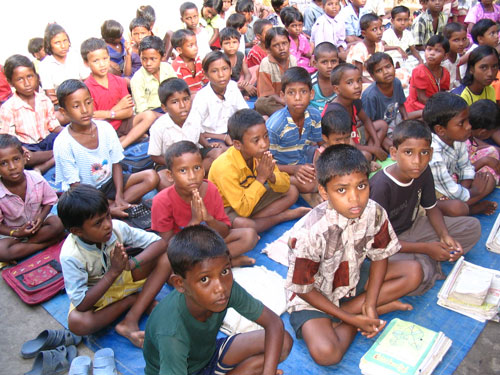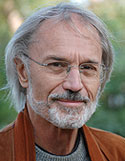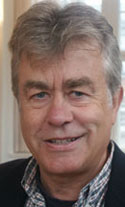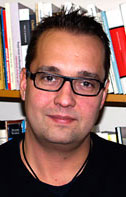SWEDISH SOUTH ASIAN STUDIES NETWORK
Division of Sociology of Law, Lund University:
Postal
address: Rättssociologiska enheten, Box 42, SE-221 00
Lund, Sweden
Visiting address: Allhelgona Kyrkogata 14 J
Web page: http://www.soclaw.lu.se/o.o.i.s/4047
Contact persons: • Associate Professor Per
Wickenberg,
Administrative head of the Division of Sociology of Law, phone +46 (0)46 222 88 15
• Professor in Chair Håkan
Hydén, phone: +46 (0)46 222 88 10
On behalf of the Lund University
Commissioned Education (uppdragsutbildning), the Division of Sociology of Law has run the
Swedish International Development Cooperation (Sida) funded ”Advanced International
Training Programme on Child Rights, Classroom and School Management” since 2004 in collaboration with Lund University’s former Dept. of Education (now integrated into the Dept. of Sociology, and the School of Social Work), and School of Teacher Education, Malmö University. A new contract for another 6 years was signed in 2010.
![]()
 The programme aims at spreading knowledge about the UN
Convention on the Rights of the Child – WCPRC and support schools
and authorities in ten countries in Africa, Asia and Latin Amerika to
develop education focusing on the rights of children. Among the ten countries,
two are in South Asia – India
and Sri Lanka.
The programme aims at spreading knowledge about the UN
Convention on the Rights of the Child – WCPRC and support schools
and authorities in ten countries in Africa, Asia and Latin Amerika to
develop education focusing on the rights of children. Among the ten countries,
two are in South Asia – India
and Sri Lanka.
In India, special focus has been put on Wayanad district in the northern part of Kerala state, from where many participants to he programme have been selected.
The collaboration partners on the Indian side are in New Delhi: Dr. Nalini Juneja, and Dr Madhumita Bandyopadhyay at NUEPA (National University of Educational Planning and Administration); and in Kerala/Calicut: Professor Naseema Chandrikalayam, Head, Department of Education, University of Calicut.
The programme is oriented to target persons holding a position from where they can initiate processes of change in their home countries and who can participate in reform processes of strategic importance on different levels of action.
The overall aim of the training programmes is to contribute to capacity development and processes of change in developing countries by offering key persons training. The International Training Programmes are specially designed for persons qualified to participate in reform processes of strategic importance on different levels and holds a position in the home organisation with mandate to run processes of change. In the long-term perspective the programmes should contribute to institutional strengthening and capacity development in the participants’ countries. Training is focused on support to individual or team plans for change.
The child rights programme centre around the knowledge, skills, values, attitudes and behaviours required for the participants to understand, respect, claim and defend child rights. Further, the training programme also promote the examination of child rights principles and instruments as well as the promotion of critical reflection and inquiry. Finally, the training programme encourage its participants to take action and become agents of change in their domestic contexts.
The Child Rights, Classroom and School Management programme was one of the first International training programmes funded by Sida that had a clear change focus. One of the key elements in the training programme is to initiate and support change processes in the participants’ home organisations and countries. The training programme has so far initiated close to 120 change processes in the participating countries.
More information
about the Child Rights, Classroom and School Management project.
Research connected to South Asia
 Per Wickenberg
(photo to the left) has been doing research and educational projects on Environment, Sustainable
development and Children’s rights, mostly in Asia. His area of research is on education as an influencing and steering area with norm-creating processes in society, especially within the sphere of education relating to Child Rights Convention and Sustainable Development.
Per Wickenberg
(photo to the left) has been doing research and educational projects on Environment, Sustainable
development and Children’s rights, mostly in Asia. His area of research is on education as an influencing and steering area with norm-creating processes in society, especially within the sphere of education relating to Child Rights Convention and Sustainable Development.
 Professor Håkan
Hydén (photo to the right) has done several research projects over the
years on Human Rights and Child Rights in the third World, and also on
environment and sustainable development.
Professor Håkan
Hydén (photo to the right) has done several research projects over the
years on Human Rights and Child Rights in the third World, and also on
environment and sustainable development.
Per and Håkan have been involved in a research
project on the issue of realization of right to water forms. The project,
also involving Professor Karsten Åstrom,
is named ”Children’s Right
to Water: Problems and Prospects of its Effective Realization in India
from Gender Perspective” and was carried
out in collaboration with Nandita Singh at the Dept.
of Land and Water Resources Engineering; Royal Institute of Technology
(KTH), Stockholm, and also in collaboration with
the National Institute of Human Rights at National Law School of India
University in Bangalore, India (contact person: Sarasu
E. Thomas,
Coordinator); and SEWA Academy (Self-Employed Women’s Association),
SEWA, Ahmedabad, India (contact person: Namrata
Bali, General Secretary).
A SASNET
planning grant was given to the project in August 2005.
In
November 2006, Per Wickenberg received SEK 1 650 000 as a three-years
grant (2007-09) from Sida's Developing Country Research Council (U-landsforskningsrådet)
for this project. More information about South
Asia related Sida grants 2006.
Abstract of project: Since water is a basic
resource indispensable for life,physical survival and holistic development
of children, it is recognized as their human right within the scope
of CRC, CEDAW, ICESCR, seen as pre-requisite to realization of several
other rights. While realization of the right is relevant for girls and
boys, it holds greater significance for girls because they start acting
as collectors and managers of water at an early age, a role with
difficulties due to problems in quality and quantity of water and availability
of resources. In this context, India presents a significant case where
despite positive actions by state towards its protection & fulfillment,several
children are unable to enjoy the right effectively. This project aims
at actor-oriented analysis of factors within their socio-cultural context
that thwart the process, attempting to design appropriate strategies
for addressing them.
 Dr Måns Svensson works as programme manager at the department. He is engaged in three projects connected to India, including the Sida funded Child Rights project, described above. Dr. Svensson is also working with a project entitled Cybernormer, and a company entitled Finja Five AB. In his work, he is closely connected to a network of researchers at the Indian Institute of Management Madras (IITM) in Chennai, besides a number of business contacts.
Dr Måns Svensson works as programme manager at the department. He is engaged in three projects connected to India, including the Sida funded Child Rights project, described above. Dr. Svensson is also working with a project entitled Cybernormer, and a company entitled Finja Five AB. In his work, he is closely connected to a network of researchers at the Indian Institute of Management Madras (IITM) in Chennai, besides a number of business contacts.
![]()
 Cybernormer is a research group within the field of Sociology of Law that aims to explore the norm creating processes (social and legal) that appear in the wake of the changing information technology.
First and formost it is about exploring the gap and the distance that today is at risk of emerging between the traditional society’s rules and the social norms that are generated within the framework of young net cultures.
Cybernormer is a research group within the field of Sociology of Law that aims to explore the norm creating processes (social and legal) that appear in the wake of the changing information technology.
First and formost it is about exploring the gap and the distance that today is at risk of emerging between the traditional society’s rules and the social norms that are generated within the framework of young net cultures.
The group consists of researchers at the Department of Sociology of Law at Lund University along with a number of collaborative partners. KK-stiftelsen (The Knowledge Foundation, a Swedish research financier for universities with the task of strengthening Sweden's competitiveness and ability to create value), Ericsson AB and The Pirate Bay are among others involved in the collaboration. More information.
 FinjaFive AB is a knowledge enterprise within the business segment of Information and Communication Technology (ICT). Its main business is Child-Friendly-Computing for emerging markets, globally. The company originates from a research cooperation between Ericsson AB and Lund University, a cooperation that started early 2008. Måns Svensson is CEO of FinjaFive AB.
FinjaFive AB is a knowledge enterprise within the business segment of Information and Communication Technology (ICT). Its main business is Child-Friendly-Computing for emerging markets, globally. The company originates from a research cooperation between Ericsson AB and Lund University, a cooperation that started early 2008. Måns Svensson is CEO of FinjaFive AB.
India is one of the countries where Lund University runs numerous change projects together with local school managements. Hence, actors in FinjaFive AB have an extremely well developed network within the school system in India. FinjaFive AB will develop and manage the concept Child-Friendly-Computing (CFC) for schools and at home. This is in partnership with Novatium Solutions in Chennai India, that provides an end to end client server solution for the next generation of computing. A child computer solution for emerging markets is now developed – initially in India. During 2011 an interface and computer solution will be developed in agreement with the UN's Child convention. Thereafter it will be integrated with the Novatium computing solution. ![]()
SASNET - Swedish South Asian Studies Network/Lund
University
Address: Scheelevägen 15 D, SE-223 70 Lund, Sweden
Phone: +46 46 222 73 40
Webmaster: Lars Eklund
Last updated
2011-05-20
